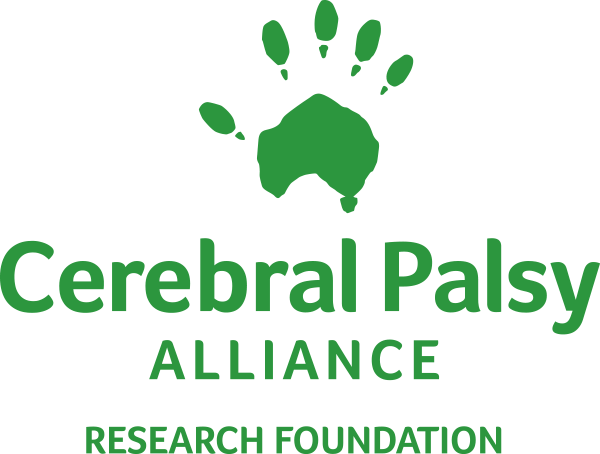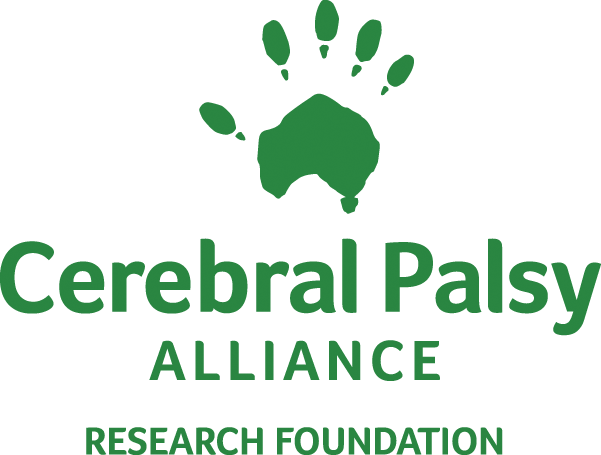
Professor Caroline Crowther – South Australia
The University of Adelaide
Avant Innovative Research Grant
$250,000 over 3 years
Antenatal magnesium sulphate prior to preterm birth for neuro-protection of the fetus, infant and child: implementation strategies for the national clinical practice guidelines and surveillance
Babies born early (less than 30 weeks of gestation) are at high risk of dying in the first weeks of life or later having cerebral palsy. New research evidence shows that giving mothers magnesium sulphate immediately prior to an early birth significantly increases the chances of the baby surviving without cerebral palsy.
Professor Caroline Crowther (Director of the Australian Research Centre for Health of Women and Babies (ARCH), Robinson Institute, the University of Adelaide) is heading a team of researchers from ARCH (Philippa Middleton and Tanya Bubner), the University of Sydney (Professor Jonathan Morris) and the Mater Medical Research Institute in Queensland (Associate Professor Vicki Flenady) to track the use of magnesium sulphate and to ensure that it is used optimally to improve the health of babies born early. The project called WISH (Working to Improve Survival and Health for babies born very preterm) will run across Australia for the next three years.

Dr Graeme Polglase – Victoria
Monash University
Avant Innovative Research Grant
$151,185 over 2 years
Reducing cerebral palsy by improving immediate resuscitation at preterm delivery
In Australia, approximately 8% of babies are born preterm (30,000 babies per year) and these infants account for 75% of all neonatal deaths. Many of the smallest preterm babies now survive. However, they are at high risk of suffering physical and neurological consequences that lead to life-long disabilities including cerebral palsy. Prematurity is fast becoming one of the biggest contributors to the cerebral palsy rate in Australia. The incidence of preterm birth has increased 36% in the past 25 years (March of Dimes) and although improved care has reduced mortality rates, this has occurred at the cost of increased morbidity.
Brain injury, particularly damage to the brain’s white matter and peri/intraventricular haemorrhage, are the most common neuropathologies observed in very premature infants. The incidence and severity of these types of injury increase with decreasing gestational age and birth weight. The underlying causes of brain injury are likely to be multi-factorial, but early respiratory care of the preterm infant may contribute to brain injury. In Australia in 2007, at least 7.2% of all babies (i.e. over 21,000) received assistance establishing breathing by the application of positive pressure respiration, using a bag and facemask or after endotracheal intubation.
However, the initiation of this respiratory care is not easily monitored in the preterm infant and recent studies from The Royal Women’s Hospital in Melbourne found that many preterm infants are inadvertently exposed to large, potentially damaging breaths. High breath volumes result in lung injury and impaired lung blood flow, which in turn leads to haemodynamic disturbance and changes in brain blood flow. Brain haemorrhage and a systemic inflammatory cascade may lead to white matter brain injury, and is linked to these brain blood flow changes.
Our group is investigating whether the use of gentler ventilation strategies in the immediate post birth period will protect preterm lambs from brain injury. Our aim is to provide information regarding safer and less injurious strategies for the initial breathing support of preterm infants. We hypothesise that prevention or reduction of disturbances in blood flow, and reducing inflammation caused by injurious resuscitation techniques, will reduce the incidence and severity of cerebral palsy in our vulnerable preterm population.

Clinical Associate Professor Nick Evans – New South Wales
Department of Newborn Care, Royal Prince Alfred Hospital
Innovative Research Grant
$50,000
Neuro-developmental outcomes of severe neonatal jaundice in Australia
Jaundice affecting newborn babies, if severe, can cause cerebral palsy and deafness. Severe jaundice in the newborn period is often preventable and when necessary, easily treated.
Previous Avant Innovative Research Grant Recipient in 2009, Clinical Associate Professor Nick Evans and colleagues from the Royal Prince Alfred Hospital in Sydney are carrying out the first nationwide survey of paediatricians through the Australian Paediatric Surveillance Unit (APSU). The awarding of this additional grant in 2010 will allow Nick and his team to ascertain how many children in Australia are affected. They hope to establish the contributory factors leading to disability and design strategies that will reduce the number of children and families whose lives may be devastated by this.
Nick is Head of the Department of Newborn Care at the Royal Prince Alfred Hospital and the University of Sydney. He is also chair of the NSW Perinatal Services Network NICU Managers Committee and on the executive of the Australian and New Zealand Neonatal Network.

Dr Tamara Yawno – Victoria
The Ritchie Centre, Monash institute of Medical Research
Innovative Research Grant
$50,000
Novel cell based therapy for cerebral palsy
Dr Tamara Yawno is a Royal Australian and New Zealand College of Obstetrics and Gynaecologists Research Fellow working at The Ritchie Centre, Monash Institute of Medical Research in Melbourne. She is studying the potential clinical use of novel stem cells in the treatment of cerebral palsy. Tamara is investigating whether human amnion epithelial cells, harvested from the placenta after delivery of the baby, can reduce brain inflammation and injury sustained in late pregnancy and at delivery that is associated with cerebral palsy.
Tamara is working with a team of dedicated scientists and clinicians who have shown that these amnion derived cells have reparative properties similar to those of embryonic stem cells. Since they are obtained from tissues that are normally discarded at birth, they are not subject to ethical issues associated with their derivation. The team has shown that these cells can be safely administered in animal models of disease, have anti inflammatory and reparative properties and can differentiate into brain and lung cells.
Over the last five years Tamara has worked closely with Dr Suzie Miller, Professor Graham Jenkin and Professor Euan Wallace to harness amnion epithelial cells for therapeutic applications, including treatment of lungs of babies born prematurely and brains of babies who suffer from oxygen deprivation (hypoxia) in late gestation and at delivery.
The grant will allow Dr Yawno to investigate whether amnion epithelial cell will reduce inflammation, protect against brain injury and will differentiate into brain cells following administration in animal models of cerebral palsy.
Dr Paul Colditz – Queensland
University of Queensland Centre for Clinical Research
Innovative Research Grant
$50,000
Ischaemia as a causal pathway to cerebral palsy in the preterm baby: advances in prognostication, treatment and prevention
Babies born very preterm are at high risk of cerebral palsy. About 40% of all children with cerebral palsy are born very preterm. Professor Colditz and his team will undertake a study in babies using innovative methodologies to determine whether a critical reduction in blood flow to the brain is the cause of cerebral palsy.
Knowing the role low blood flow to the brain plays in causing cerebral palsy will help to (i) predict which babies will have a disability, (ii) identify which babies may benefit from very early interventions and (iii) identify rational approaches to prevention of cerebral palsy.
Paul’s established multidisciplinary, experienced research team will use new research tools (MR compatible incubator, MR sequences and processing, high density EEG and signal processing) unique in Australia.

Associate Professor Kei Lui – New South Wales
University of New South Wales
Balnaves Foundation Doctoral Research Scholarship
$81,000 over 3 years
Preventing cerebral palsy- the impact of therapeutic hypothermia in neo-natal encephalopathy in Australia
It is now clear that perinatal hypoxic ischaemic encephalopathy (HIE) often referred to as lack of oxygen at birth, is a major cause of death and disability in babies born at term or close to term.
Professor Kei Lui is Head of Newborn Care at the Royal Hospital for Women in Randwick NSW and he is leading a PhD project to evaluate the long-term outcomes for survivors of HIE.
Professor Lui and his doctoral student will compare and determine whether therapeutic hypothermia can reduce cerebral injury and improve neurological outcomes for babies born with HIE.
Dr Natasha Lannin – New South Wales
Rehabilitation Studies Unit, Royal Rehabilitation Centre Sydney
Balnaves Foundation Doctoral Research Scholarship
$155,576 over 4 years
Developing a framework for accelerating neuro-protection clinical trials in infants with or at risk of cerebral palsy
The aim of this post-doctoral fellowship project is to develop an Australian Cerebral Palsy Collaboration to promote and support high quality research in the area of cerebral palsy, in order to improve the health and wellbeing of children with cerebral palsy and their families.
The Collaboration will enhance Australian cerebral palsy research capacity by increasing collaborative working within the Australian cerebral palsy research community, improving links with academic and commercial funders, and removing barriers to cerebral palsy research in Australia
Paediatric Movement Analysis Service- New South Wales
The Children’s Hospital at Westmead
Innovative Research Grant
$60,000
The Children’s Hospital at Westmead will use the grant to support the operating of the Paediatric Movement Analysis Service.

